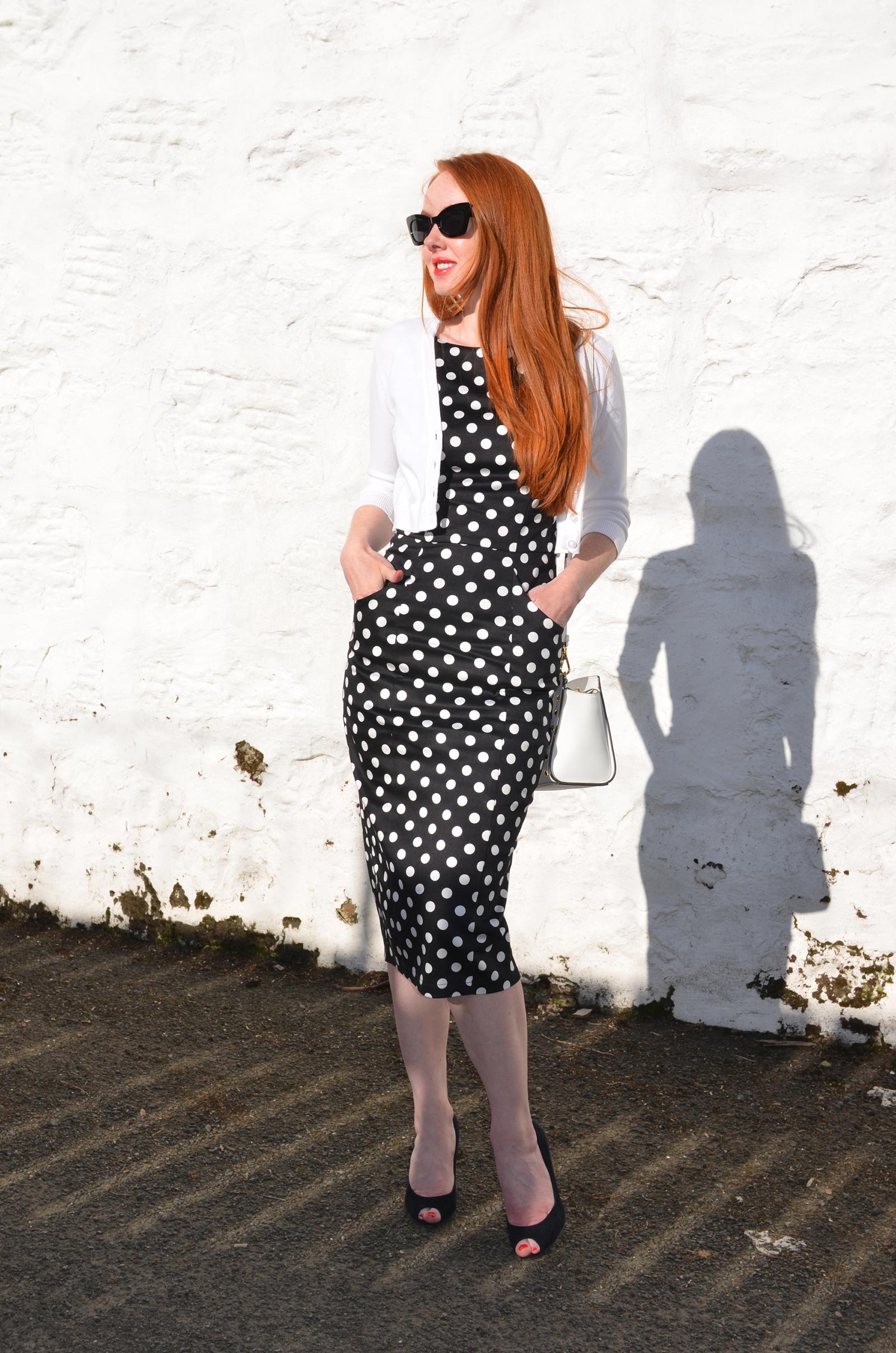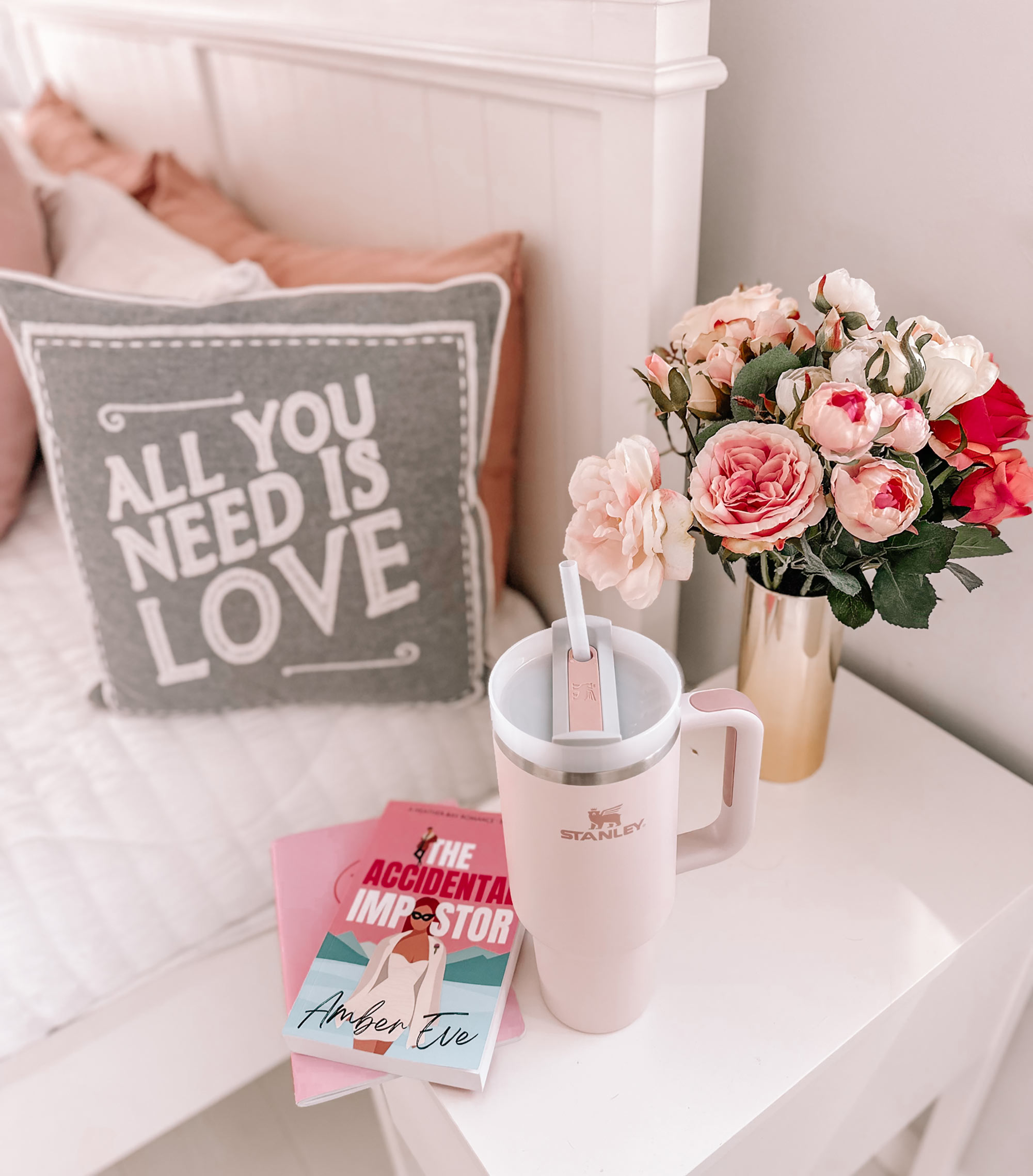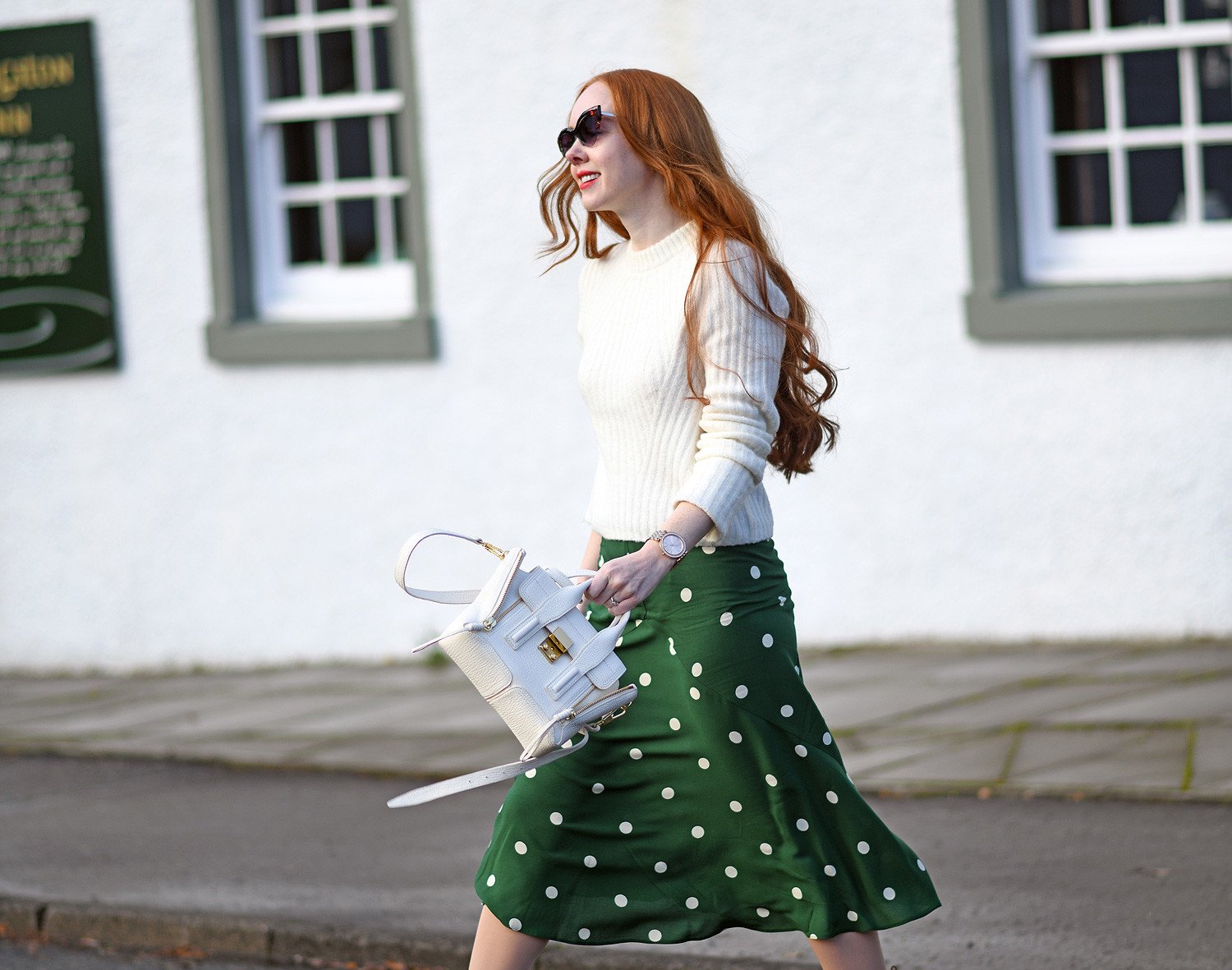How to become a blogger: my story…
Just in case you haven’t been obsessively combing through my archives (and, I mean, seriously, WHY NOT?), you’ll find the first part of this story, in which I talked about how I got into blogging in general (and how I came to start this very blog that you’re reading now) here.
The story of why I decided to start blogging professionally, however, is a little different, and it’s a story I always intended to get round to writing down someday. Now seems as good a time as any: partly because it helps provide a bit of context for the rest of this series (I should really have written this one first, then, huh?), but also because it gives me the opportunity to expand a bit on some of the points I made in that post, about why I don’t think blogging for money is the terrible sell-out some people like to paint it as, and how, for me, it was really just a natural progression from my career in journalism.
(Er, it’s just occurred to me that this entire post could probably be summed up by those last few words: it was a natural progression from my career in journalism, the end. Because I am me, however, I’m obviously going to use a whole LOT of words to say exactly the same thing, so in addition to being the story of how I become a professional blogger, I guess this post also offers some insight into why I’m no longer in journalism: a double whammy!)
Although this post is mostly anecdotal, hopefully hearing about the (many, many) mistakes I made in my journey to becoming a professional blogger will be of some help to those of you who’re looking for advice on how to become a blogger, if only in a “what NOT to do” kind of sense. Learn from my mistakes, people: SOMEONE has to…
How to become a blogger: my story
how to become a blogger and get to take awkward photos of your outfits for a living…
The very start…
So, picture it: it’s 2006(ish). Terry and I have recently started our own business, which offers website design (Terry) and freelance writing services (me). When I first started freelancing, almost all of my clients were in the “traditional” media; newspapers, magazines and the like. As time went on, though, that started to change, and gradually I found myself doing more-and-more web writing: mostly for retail sites, but with a smattering of content-based sites thrown in.
The change was a welcome one for me. I’d enjoyed the writing I’d been doing, don’t get me wrong, but writing for the web was much less stressful than writing for print publications: it was less deadline-based for one thing, and there was more freedom involved, too. I found that the majority of my web clients were pretty hands-off, so rather than having a very specific brief to follow, I’d be left more-or-less to my own devices, and allowed to come up with topics myself (within reason, obviously).
I can’t say I was interested in everything I ever wrote about (as a freelancer I covered everything from car insurance to party planning, and a whole lot more besides…), but the lack of stress was a big deal for me. One of the main reasons I’d decided to become self-employed in the first place was to try to eliminate some of the stress brought on by Terry’s illness, and the subsequent realization that I was making myself ill from the pressure of the job I was in at the time, and so anything that allowed me to make a living without wanting to burst into tears every few minutes was just fine by me.
By this point, I had already started this blog (which was a continuation of my Livejournal, which was itself a continuation of the paper diaries I’d kept since I was 11…), but it hadn’t even OCCURRED to me that blogging was something I could possibly make money from. I mean, “blogs” were just online journals, which were just collections of ramblings about people’s boring lives, and no one would ever make money from THAT, right?
(Yeah, I feel pretty stupid now, to be honest. Although I was pretty early to the blogging party, I was basically standing in the corner, nervously clutching my drink and wondering if anyone would ever talk to me, while all the cool kids got on with becoming the trailblazers of the blogging world. Sucks, huh?)
Anyway! There we were, 2006 Terry and I. Terry was building websites for clients; I was writing the content for the websites he designed. Those websites would then go on to make money for their owners, who would continue to profit from our work long after Terry and I had cashed their cheque and spent it on shoes.*
(*I’m kidding. We didn’t even HAVE shoes in 2006. Or iPhones. But we DID have CHEQUES. It was a whole different world, kids!)
You can see where I’m going with this, can’t you?
Well, it took a bit of time, but eventually the penny dropped, and we realised that if the websites we were building for other people were making money, we could probably put our combined skills to use, and make a website for ourselves, and see if it would make money for US. Which we would then get to keep, and spend on shoes. Hmmm.
I gave it a little bit of thought, and when I say a LITTLE bit of thought, I really mean it: if there’s one thing you take away from this story, folks, it should be that a LITTLE bit of thought is not really enough when it comes to starting a website – or any kind of business. Take it from one who now owns more domains than shoes. And I own a LOT of shoes, let me tell you…
I should, of course, have given our first website a LOT of thought, but one of my problems in life is that when I decide to do something, I have to do it RIGHT NOW, THISVERYSECOND, and that’s how I came to launch Writing World.
How to become a blogger: My first commercial blog, and why it failed
I know, it’s a kinda naff name, isn’t it? I didn’t care, though: I was so keen to get started with the making of all the money, and the buying of all the STUFF, that I didn’t stop to really think about it, and just bought the first domain I could find which had the word “writing” in the name, even although I didn’t even like it. (Actually, forget what I said above: if you take one thing from this story, it should be that you never, EVER buy a domain without making sure it’s the best possible choice, because SERIOUSLY.)
So, we bought the domain, and Terry built the website. Writing World was, as I’m sure you’ve guessed, a site for writers: specifically, it was a site designed to help freelance writers find work. It wasn’t a “blog”: as I said at the start of this post (Hey, remember the start of this post? Because my memory doesn’t go back that far…), when I started thinking about the possibility of making money online, blogging didn’t even enter my mind. I thought purely in terms of “online business”, which is how I’d probably have described Writing World: it had a jobs board, which I planned to charge employers to advertise on, and a bunch of articles which bore no resemblance to what we think of as a “blog” nowadays. Oh, and it didn’t contain any information at all about me and my fascinating life, which is what I thought a “blog” was back then: it was simply a website for freelance writers.
I chose the topic because, of course, I was a freelance writer at the time. And I was always looking for work. I didn’t know much, but I DID know you should always try and write about what you know, so the topic was a no-brainer. (Literally, I mean: as in, I didn’t actually use my brain…) I loved writing, and I knew from my non-stop search for work that there was a big demand for freelance writing jobs, so I would put the two together, and wind up with a super-successful website which would also help me find freelance writing work: how could it fail?
Well, as I soon discovered, it could fail in TWO ways. The first revolved around the simple fact that although I loved writing, I DIDN’T love writing about writing, so producing content for the site was much more of a chore than I’d anticipated.
Pro-tip: when you’re starting your blog, pick a topic that won’t feel like a chore to write about, even when it’s 1am in the morning, you have to work the next day, and you still need to put together a post for your blog…
The other problem was that I hadn’t done my research. If I had, I’d have realised that the market for websites about freelance writing was basically saturated. There were TONS of sites out there, all doing exactly the same thing as my site, except they were doing it better, and had been doing it better for longer. I really didn’t have much of a chance, especially considering that I was attempting to launch and run this site while still doing all of my regular work.
Pro tip # 2: there’s not much point in trying to do the same thing, in the same way, as every other website out there, or you’ll just end up trying to compete with people who’ve had several years’ worth of a start on you, and you will not win…
I wouldn’t say it was doomed to fail, exactly: I think with a bit more work and a LOT more thought, I could have made a go of it. It DID fail, though: it turns out no one was really into the idea of paying to advertise jobs on my brand new website when there were already much more established websites out there, which would be a much better investment for them. WHO KNEW? I eventually DID turn the site into a blog, a long time later, once blogging had become a “thing”. I closed it down years ago, when it became clear that I STILL didn’t love writing about writing, and nor did I have the time to maintain another site: most of the posts, however, were imported into Forever Amber, and can be found in the ‘blogging’ archive, if you scroll back far enough. And although it wasn’t a success, rather than putting me off the idea of making money online, that experience only made me more determined to try to make a go of an online business.
I should probably say here that I had absolutely HATED traditional employment, and although the freelance writing I was doing at this point in time was a vast, vast improvement on that, it still wasn’t perfect. I still had clients. I still had deadlines. I still had to spend my time writing about and researching subjects I had absolutely ZERO interest in. I still had stress, albeit not nearly as much as I’d had in traditional employment. It was still WORK, in other words, and it wasn’t always particularly satisfying work, either.
Now, don’t get me wrong: I’ve never been afraid of hard work. I got my first job when I was 18, and worked all the way through university, then, when I graduated, I kept on my weekend job for over three years, working seven days a week, and only occasionally getting a day off. While I was prepared to do that to pay for the things I wanted in life, though, I’d never really gotten much satisfaction out of it: I was getting paid to write (And also to answer phonecalls in a call centre: livin’ the dream, people!), and that was great, but I was left with the feeling that the work I created wasn’t really MINE, and ultimately benefited someone else more than it did me.
I wanted to TRULY be my own boss: to be completely in charge of a business that I owned, and to answer to no-one but myself. So I started looking into other ways to make money from home. At around about the same time as I was launching my first website, I also put a lot of time (and quite a bit more money than I really should have) into trying to start an eBay store, first of all selling off my own clothes, and then moving onto buying stock wholesale to sell on. That was even LESS of a success than Writing World had been, so I decided I should probably stick to what I knew best, which was writing.
At one point, I seriously considered launching a print magazine – I even went as far as getting print quotes and writing a business plan – but the startup costs were much too high, so I turned my attention back to the internet, and the idea of producing an online magazine instead.
That’s what blogs were, back in the day: online magazines. In fact, I’d argue that that’s pretty much what blogs are NOW, really. I think what a lot of people forget is that a “blog” is just a website which is organised in a particular way, and which generally has just one author – although even that isn’t necessarily the case. This is why I’m always so puzzled when people react with such horror at the idea of people making money from blogging, which they think should only ever be “a hobby”.
No one was remotely horrified when I talked about possibly starting a print magazine, and no one thought it odd when I decided to publish that magazine online instead: in fact, it made perfect sense. I was a journalist, after all: creating content had been my bread-and-butter for years, and the fact that the content I created would be published on the internet rather than on paper didn’t really make much of a difference, as far as I was concerned. So I started to think about what my “online magazine” would be about, and there was only ever one real answer to that : fashion.
You’ll be pleased to know that I put a lot more thought into my next online venture than I had my first, having learned a couple of important lessons from that experience. The first one, as I mentioned in my last post, was to choose a subject I knew I’d always want to write about. Although I loved writing, I’d quickly discovered I didn’t love WRITING-about-writing, but I didn’t think I’d have the same issue with fashion. I was as sure as I could be that I’d be able to keep writing about clothes as long as there were clothes to write about: the problem was finding a way to write about clothes that hadn’t already been done to death.
This, it turned out, was much more of a challenge. From my experience with my freelance writing website, I’d worked out that there wasn’t much point in doing the same thing everyone else was doing: I needed to put my own spin on it. And in the end, the idea for The Fashion Police as purely down to the name. I’d been trawling through domain registry sites, looking for domain names with the word “fashion” in them, and I discovered that TheFashionPolice.net was available.
How to become a blogger: My second commercial blog, and why it worked
Even back then, I would never normally have gone for a .net domain, but although none of the other variations of the name were available, none of them were actually in use at the time, either. The phrase “fashion police”, however, WAS in common use, so we figured we had a great opportunity to capitalise on that, and create something that had a good chance of success. (What we COULDN’T have known at the time, of course, was that, several years later, the same name would be used by a popular TV show, and effectively ruined, but that’s a WHOLE other story, trust me…)
Anyway! The Fashion Police was born, and it was, as I said, an online magazine, with a forum, and articles, and all the stuff you would expect. Much to my surprise, it quite quickly started to get some traffic, mostly (I assume) from people Googling the phrase “fashion police”, so I was cautiously optimistic.
At this point, I was still freelancing, which wasn’t exactly ideal. I knew that if I wanted The Fashion Police to grow, I’d have to spend much more time on it, but I didn’t HAVE that time to spend, because I was so busy writing for other people. There wasn’t much to be done about it, though, so I continued freelancing, and updating the site whenever I had time, and one day, while I was looking at a freelance jobs board I used to frequent, I noticed an advert for freelance bloggers. “Haha, freelance bloggers!” I thought. “Who’d pay someone to BLOG?” (Because blogs were just diaries, remember. There was NO WAY anyone could make money from that. Ahem.)
As it turned out, the people who would pay someone to blog were called Shiny Media, and they were the UK’s biggest blog network at the time. I applied, and was offered a job writing for their TV blog, TV Scoop – which was pretty hilarious, really, because I hardly ever watched TV back then. (Well, we didn’t have Netflix in those days, kids. So if you wanted to see a TV show, you had to know when it was on, then you had to either watch it AT THAT TIME, or you had to record it. Oh, the humanity!) Anyway, I started out writing occasional posts for TV Scoop, and by the time I gave up freelancing, a couple of years later, I’d written for 6 other Shiny blogs, and was editor of their shoe blog, Shoewawa. (Most of those sites are defunct now, the company having gone into administration a few years ago. That’s ALSO a whole other story…)
Writing for Shiny Media’s sites taught me a lot about blogging, but the most important thing it taught me was that blogging was something that it was possible to make money from: and a LOT of money, in some cases. Shiny, you see, were making a LOT of money at the time. They had swanky London offices, a huge staff, millions of pageviews every month. They were making lots and lots of money, and they were doing it simply by blogging – or, as it so happened, by getting people like ME to blog for them.
The thing I couldn’t help but notice in all of this, you see, was that while Shiny were doing what they did incredibly well, what they were doing wasn’t anything particularly revolutionary. They had blogs. They updated them. They made money from selling adverts on them. These blogs weren’t anything like the “journal” style blogs I was used to either. They weren’t personal at all, in fact. They were blogs about shoes, fashion, makeup, technology. They were online magazines, basically, just presented in the same format as a blog.
*LIGHTBULB MOMENT*
The Fashion Police was, at this point, still an “online magazine”, and it was run on a platform called Drupal, which I found quite clunky, and not particularly user-friendly. (I should stress here that this was YEARS ago: I’m sure Drupal isn’t like that NOW, so I’m not saying that to slate it, or anything, and it was just MY experience of it, anyway…) As it gradually dawned on me that the content I was writing for Shiny Media were more or less the same kind of thing as the content I was creating for my own site, it occurred to me that it would be easier all round if I just turned The Fashion Police into a blog.
So I did. My first commercial blog was born, and is still going to this day. (It was’t my first blog, of course: Forever Amber actually came first, but it was the last of my blogs to be monetized: if this post wasn’t quite long enough for you, you can read the story of how I came to start this blog here…) It was joined by my now-defunct beauty blog, Hey, Dollface! about a year later, and then by ShoeperWoman in 2009, and that’s us pretty much up to date. AT LAST.
As I mentioned in Part 1 of this story, for me, professional blogging was really just a continuation of my writing career, which is why I find it so hard to understand why there’s still a degree of controversy around the idea of blogging for money. Writing is what I’d always done: it had been my career since I graduated, so when I hear people say that blogging should only ever be a hobby, I feel like they’re saying that WRITING should only ever be a hobby, which makes no sense at all to me. It’s like going into a restaurant and telling the chefs and wait staff that they should make and serve food purely for “the love of it”, and that they’re selling out by accepting a pay check for their work. I’d always been paid to write, so when I started to write for blogs, it made sense that I would be paid for that too. I was still creating content, after all, and whether that content was being published online, or in print, I still expected to be paid for it: who wouldn’t?
(Just to clarify: I don’t mean to say that everyone who blogs should do it for money: just that those of us who DO shouldn’t be made to feel like “sellouts” or “lesser” bloggers because of it!)
I quit my last freelance writing job in 2009, and have been running my own sites full time ever since. I’m not going to claim it’s always been easy, but I can say with 100% certainty that it’s the best thing I’ve ever done. Quite simply, I love my job: and I didn’t ever think I’d say that. I went from being someone who dreaded getting out of bed in the morning, and who was constantly stressed and depressed, to genuinely loving what I do. I get to wake up every morning and write about subjects I’m passionate about: every day I get to create something that’s 100% mine, and which I’ve built from nothing: it’s satisfying in a way that traditional employment never was for me, and I’m incredibly grateful that I get to call it my job.
As for the future, well, who knows? People have been predicting the “death” of blogging ever since I started out, but it’s still here, and while it’s changed a lot (particularly in the past couple of years), I hope it won’t be going anywhere soon. When I hear people say that blogging will “die”, I remind them that a blog is just a website laid out in a particular way: blogging in its current form may go out of fashion, but I think the internet is here to stay, and as long as there are things to write about, and people to read the articles that are written, I’m hoping to stick around, too.












Mana
08/31/2014I’ve been a bit obsessed with this series, and I will be impatiently waiting for part two! And I love the outfit in the photos. It’s really cute.
Mana
Fashion and Happy Things
Sue @ A Colourful Canvas
08/31/2014…well talk about a cliff hanger Amber!
Thanks for the link back to your blogstory! Both today’s post, and especially your blogstory post, have got the wheels turning.
Gillian
08/31/2014Thanks for writing this (and linking to my blog!)!
Fiona
09/01/2014I remember Writing World! Cos at that point I was working for another website that advertised freelance writing jobs. Sorry. (The organisation I worked for did it for free though, we had government funding. Sorry again.) This is fascinating!
Rosanna
09/01/2014I really love this series Amber, thanks for posting it! I can’t wait for the next excerpt. I would love to have the freedom to work for myself at home.
I completely got lost in your archives last night after reading this, I didn’t realise that you had been blogging for so long, that’s an achievement in itself!
CiCi
09/01/2014I really want to know what happens next now! You must be one of few bloggers who will write such long posts and I stay hooked until the end – guess that’s why you’re paid to write, eh 😉 I love these kind of posts though – bringing some human back to this strange part of the internet where we post pictures of ourselves but still somehow say very little about who we are (I’m completely guilty). Hopefully these don’t take you very long to write, as I want to read the next one!
Amber
09/01/2014They’re actually much easier for me to write than shorter ones, because once I start trying to edit things down, it can take me all day! I know a lot of people really detest long posts, though, so I’ve been a bot paranoid that I’m just putting people off with these – really glad you liked it!